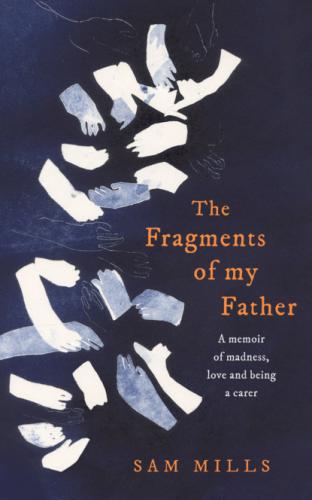That day in September, when it first happened, I remember setting down plates on the dining-room table for lunch. My eyes skimmed a stain on the carpet. My mother had lived her last days in this room, and the stain had been created by – a spilt drink? – a splash of urine? – now faded to a watermark.
I went into the hallway and called upstairs: ‘Dad, it’s ready!’
Two plates on the table. The empty place where she once sat, at the head. My appetite was always sharp. Still standing, getting impatient, I speared a potato and chewed it quickly. I called to Dad again. When there was no reply, I hurried up the stairs. ‘Come in,’ his quavery voice replied to my knock. He was sitting on the bed, looking at the clothes neatly laid out next to him – trousers, braces, shirt – as though he had been given a set of bad letters at a turn in Scrabble and couldn’t make a word out of them.
Kneeling down, I busied myself with peeling off his socks, pulling on taut crisp ones. But when I reached for his pyjama shirt, my hand paused. I hadn’t seen my dad naked since I was a child.
‘Why don’t you have lunch in your pyjamas?’ I suggested.
As he lumbered down the stairs, I thought: hang on, has he even taken his morning medicines? One of our kitchen cupboards now functioned as a medicine cabinet: I found a jumble of white boxes with scientific names and labels giving instructions for doses. In the dining room, Dad sat down before his plate of cooling chicken and vegetables. I passed him his pills. Silence; stasis. I poured him a glass of water and put the pills on a spoon. I raised them to his mouth. He opened it. I slipped them in and passed him the water.
I started to cut up his food. A piece of chicken on the end of my fork came up against his closed lips. He looked at me as though he couldn’t hear the words I was saying: Dad, it’s good to eat, you need to keep your strength up. For one surreal moment, I felt as though I was an apparition he did not believe in. When I called 999 they asked if he was breathing, if he was in pain, and I had trouble explaining his state: he seemed as though he was in a coma, yet he was awake. After I hung up, I took solace in the sound of him breathing in and out, but I could not make his eyes connect with mine. The fading light in them chilled me with a grief-flash: my mother lying in this room, on a makeshift hospital bed, the life seeping out of her. It was as though he was in a liminal state, body half-dead, mind in purgatory.
It took eight weeks for him to heal. Due to a lack of beds at the local psychiatric hospital in Tooting, he was transferred from St Helier to Tolworth hospital, where he shared a ward with elderly patients suffering from dementia. There he was medicated and nourished back to walking, talking, speaking health and discharged for Christmas. I had assumed then that the catatonia was a blip, a one-off. Perhaps he’d just got tired, run down, needed rest. Now that it was happening all over again, I could no longer dismiss it as an anomaly. This was the start of something new, a pattern I could neither name nor explain. I thought of all the years that my mother had looked after him. Why, after decades of stability, had he collapsed again – and why into such a strange state?
Конец ознакомительного фрагмента.
Текст предоставлен ООО «ЛитРес».
Прочитайте эту книгу целиком, купив полную легальную версию на ЛитРес.
Безопасно оплатить книгу можно банковской картой Visa, MasterCard, Maestro, со счета мобильного телефона, с платежного терминала, в салоне МТС или Связной, через PayPal, WebMoney, Яндекс.Деньги, QIWI Кошелек, бонусными картами или другим удобным Вам способом.
